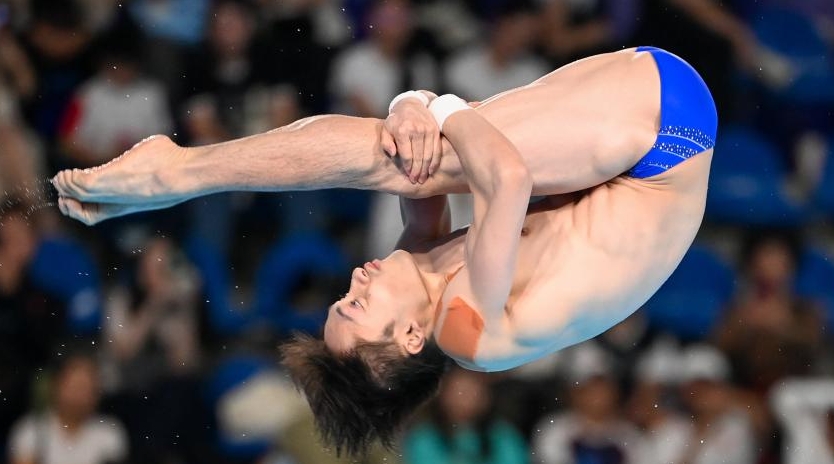In China, there's a sight that astonishes even the most seasoned sports fans: a cluster of world champions straining every sinew and gasping for every point - simply to win a national title.
That's no exaggeration. In China, for some athletes, winning a world championship can actually be easier than claiming a national one.
Welcome to China's 15th National Games, the country's premier multi-sport event. For the first time, the quadrennial Games is jointly hosted by Guangdong, Hong Kong and Macao, running until November 21 and drawing over 14,000 elite athletes from across the country.
It's a stage so fierce and so dazzling that domestic duels often look like world finals.
Take table tennis for example, which is China's national obsession and its most dominant sport globally. When titans like Ma Long, Fan Zhendong, Sun Yingsha, Chen Meng and Wang Chuqin meet under the same roof, you might understand why the nation's grip on the world title seems unshakable.
One bad match can see an Olympic champion knocked out. The table tennis arena at the National Games has no easy rounds and no secrets, as everyone knows each other. These domestic rivals have traded blows in training halls for years.
It's like a neighborhood duel where nobody wants to lose to the person next door, yet there are no secrets between them. Spin tricks, serve habits and stamina are all laid bare. Add a few hungry young challengers into the mix, and even legends can feel the heat.
Victory here takes more than skill. It demands luck, mental toughness and constant reinvention. Olympic champion Chen Meng, despite her Tokyo 2020 and Paris 2024 golds, still hasn't won a National Games' women's singles title. Legends like Liu Guoliang, Kong Linghui and Zhang Jike - all world champions - also fell short of the national singles gold.
So never underestimate the Games. The unique competitive ecosystem where being the world's best still isn't enough often forges world-beating athletes and record-shattering performances.
On the shooting range, Paris 2024 Olympic champion Liu Yukun fired a stunning 470.1 points in the men's 50m rifle three positions, smashing his own world record of 468.9 set last year. Meanwhile, Olympic pistol medalists Li Yuehong and Wang Xinjie didn't even make the National Games final.
"This is what top-tier competition looks like!" one Chinese sports fan exclaimed on social media.

Lian Junjie of Shandong competes during the men's 10m platform semifinal of diving at China's 15th National Games in Guangzhou, south China's Guangdong Province, Nov. 11, 2025. (Xinhua/Tang Yi)
The same intensity unfolds across diving, swimming, volleyball and weightlifting. Fans thrill to see stars like Pan Zhanle, Zhang Yufei and Qin Haiyang in the pool, or diving prodigies Quan Hongchan, Chen Yuxi, Chen Yiwen and Zhang Jiaqi competing across 14 titles.
"It's insane. You break a world record just to win the National Games," Olympic weightlifting champion Hou Zhihui said after her victory at the last tournament, where she bested the world-leading mark in order to win by just one kilogram.
"That is probably the secret to China's strength in weightlifting," she added.
Indeed, the relentless intensity keeps Chinese sports shining globally. From 2021 to 2024, Chinese athletes captured 519 world titles and set 68 world records. Beijing 2022 saw their best-ever performance at a Winter Olympics, and the Paris 2024 Games delivered their best overseas results.
The National Games' crucible is also about the future. In table tennis, for example, the top eight finishers in the senior singles categories can automatically qualify for the national team, turning the competition into both a battle for glory and a trial for survival.
Such reforms ensure that even established champions dare not relax, while young players see a pathway to the top.
That mix of tension, opportunity and sheer excellence makes the National Games not just a feast for the audience, but a celebration of the extraordinary power of Chinese sport.


 Share:
Share: 




 京公網安備 11010802027341號
京公網安備 11010802027341號